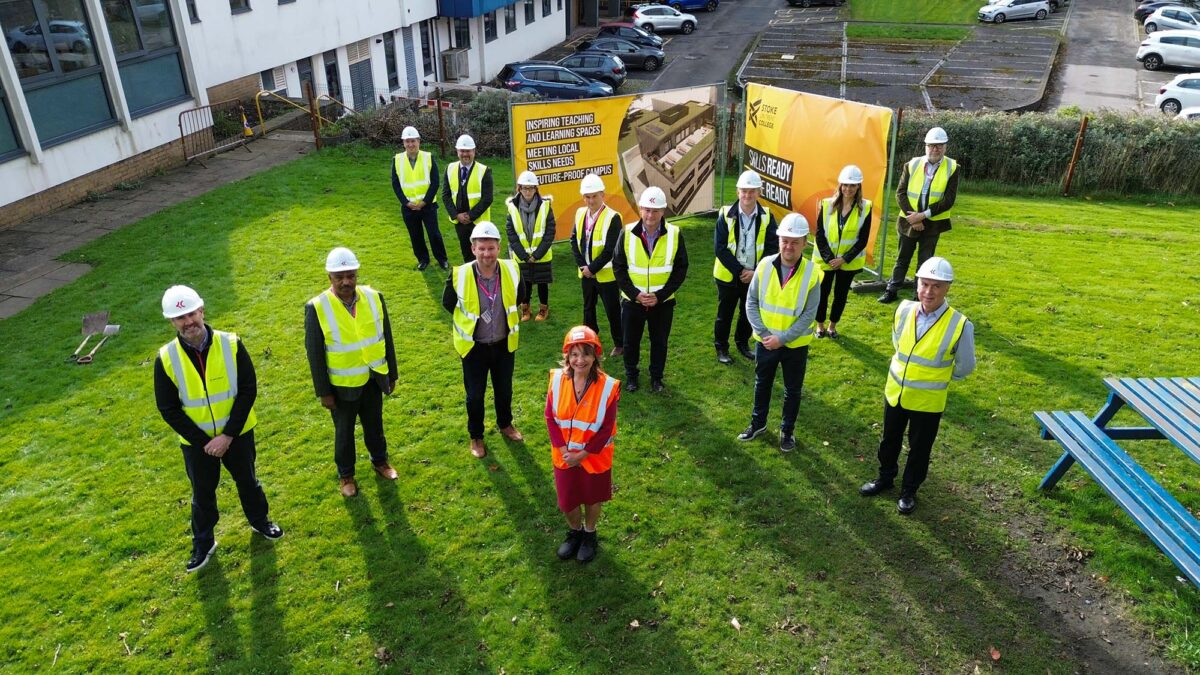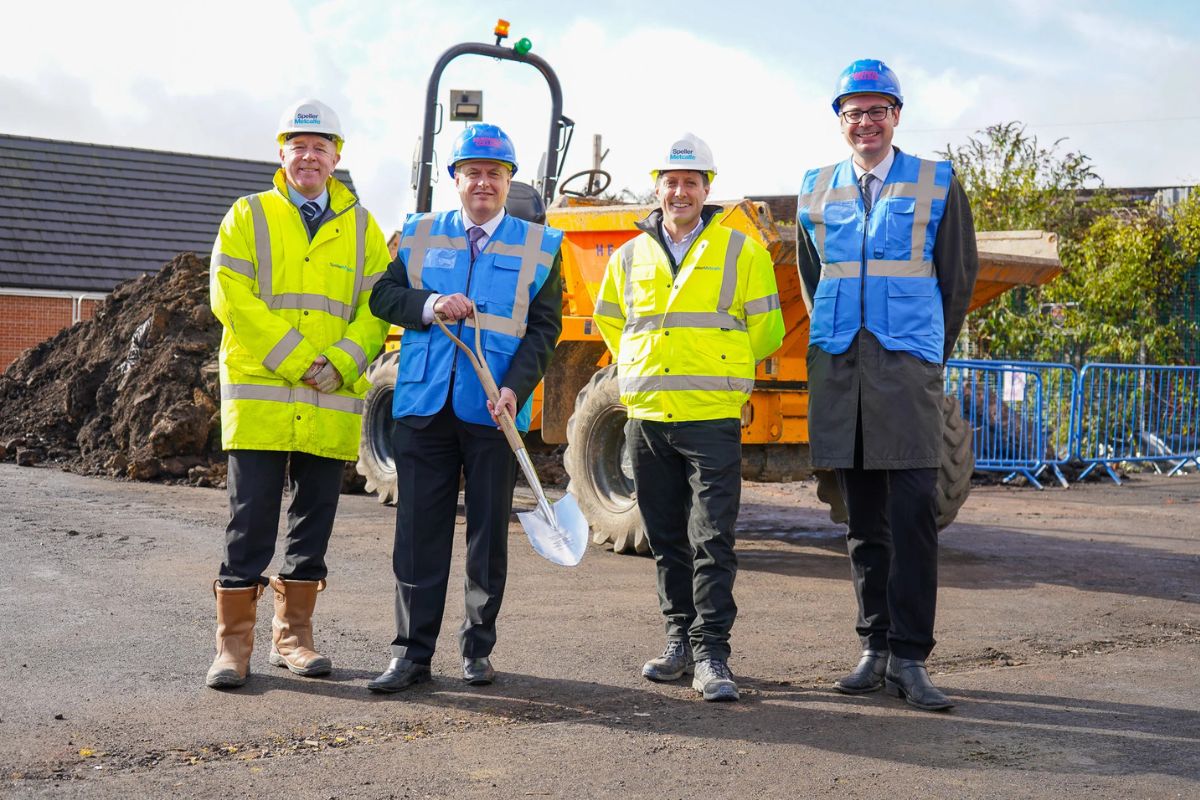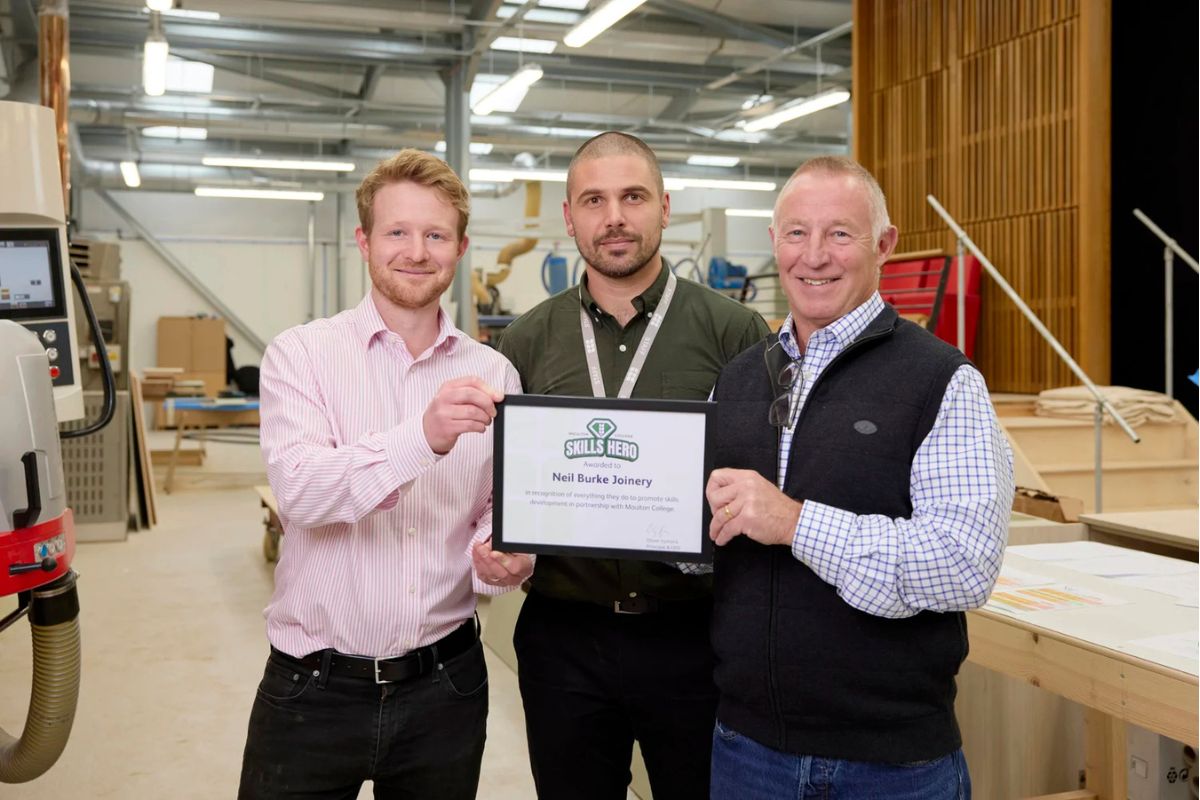The First Ever T-Level Results Day: Sector Response

The first cohort of T-Level students are to receive their results today! So today is the first ever T Levels Results day, with the first 1,300 T Level students graduating from their courses. The first cohort of T level students received their results today, with over 92% achieving a pass or above. Many have already secured their first job or an apprenticeship in areas like mechanics and digital product design, and 370 students, 71% of those who applied, have so far been placed onto a university course, demonstrating the flexibility and appeal of these courses
Overall T Level results
Overall T Level grades are calculated by the Department from core component grades, occupational specialism grades and industry placement completion status according to rules set out in the T Levels action plan.
Across all subject areas combined, the Percentage of learners achieving a ‘Pass’ or above in their T Level was 92.2%. 90.9% of males and 93.5% of females achieved a ‘Pass’ or above.
The pass rate in the three T Level subject areas were:
- Design, Surveying and Planning for Construction – 93.7% achieved a ‘Pass’ or above
- Digital Production, Design and Development – 89.7% achieved a ‘Pass’ or above
- Education and Childcare – 93.4% achieved a ‘Pass’ or above
The overall pass rate for Digital Production, Design and Development learners (89.7%) was lower than for Education and Childcare (93.4%) and Design, Surveying and Planning (93.7%). This is related to the occupational specialism pass rate for Digital Production, Design and Development learners also being lower. As this is the first cohort of learners receiving T Level results, we cannot conclude the reasoning for these differences. The first cohort of T Level learners was relatively small, especially within individual pathways, and there is no historical data to compare to.
The gender split of learners was uneven for all three subject areas. For this reason users should take caution when making comparisons between the pass rates for males and females within or between T Level pathways.
T Level Core Competent Results
The core component of a T Level is assessed through one or more written exams and an Employer Set Project, typically taken midway through the course. It is possible for learners to sit the core component assessment up to three times. Most students were entered for the core assessment in summer 2021, with Teacher Assessed Grades used in place of planned assessments. The data presented here includes the highest grade achieved for learners who have made more than one attempt at the assessment.
Across all subject areas combined, the percentage of learners achieving an ‘E’ or above in the core component assessment was 99.5% – for males this was 99.2% and for females 99.8%.
The pass rate was consistent across the three subject areas:
- Design, Surveying and Planning for Construction – 98.6% achieved an ‘E’ or above
- Digital Production, Design and Development – 99.7% achieved an ‘E’ or above
- Education and Childcare – 99.8% achieved an ‘E’ or above
T Level Industry Placement Completion rates
The on-the-job training part of a T Level is achieved through an industry placement of at least 315 hours – approximately 45 days. Temporary flexibilities were introduced for the 2020 cohort of learners’ industry placements, to recognise the impact of the Covid-19 pandemic.
Across all subject areas combined, the percentage of learners who completed an industry placement was 94.0% – for males this was 93.9% and for females 94.1%.
The completion rate was consistent across the three subject areas:
- Design, Surveying and Planning for Construction – 94.2% completed a placement
- Digital Production, Design and Development – 93.8% completed a placement
- Education and Childcare – 94.0% completed a placement
This year, exams have returned to some kind of normality. The disruption caused by the pandemic meant that exams have previously been cancelled and replaced with teacher assessed grades and assessments for the past two years. However, the pandemic’s long-lasting effects on learning has meant that adaptations to the exams were still required.
Marking a significant milestone in returning to normality post pandemic, today’s results day includes students who sat A and AS levels, level 3 vocational and technical qualifications, and for the first time ever – T Levels – paving the way for pupils’ next steps to university, further training or the world of work.
Around 1000 students will receive T Level results for the first time – the exciting new technical qualification to help young people progress onto skilled employment, university or apprenticeships.
T Levels combine study with a substantial industry placement so that students gain the skills and valuable workplace experience they need to progress into a job, further study or an apprenticeship. From this September there will be 16 T Levels available in a range of in demand subjects including digital, construction, health, science, accounting and engineering, with over 175 schools and further education providers across England offering them. More courses will be rolled out in 2023 and 2024 including legal, media and agriculture, with plans to introduce a T Level for marketing in 2025.
In 2020, the pandemic hit. Students were forced to learn from home with lessons moving online. This also meant that exams were cancelled and teacher assessed grades were used.
Exams had slightly more normality in 2021. Teacher assessed grades were used once again. However, with most students being back in the classroom, they could give students assessments to help them to determine their grades.
Now in 2022, all restrictions have been removed and the whole country is returning to normality. This means that exams were back to almost normality. Students who sat their exams in 2022 have faced massive disruptions to their education due to the pandemic. Because of this, the Government placed a number of adaptations.
For vocational and technical qualifications (including T Levels):
- The number of internal assessments were reduced.
- Hours of work experience needed were reduced and flexibilities so T Level were introduced.
- Adaptations to the delivery of assessments, if appropriate.
- Grades will be based on outcomes from a range of assessments.
Read more about the achievements, and challenges, of T Levels here.

Education Secretary, James Cleverly comments on the first ever T Level results day:
“Every single student collecting their results today should be proud of their achievements. Not only have they studied throughout the pandemic, but they are the first group in three years to sit exams. For that, I want to congratulate them and say a huge thank you to those who helped them get to this point.
“Today is also a really exciting time for our pioneering T Level students, as the first ever group to take this qualification will pick up their results. I have no doubt they will be the first of many and embark on successful careers.
“Despite the nerves that people will feel, I want to reassure anyone collecting their results that whatever your grades, there has never been a better range of opportunities available. Whether going on to one of our world-leading universities, a high-quality apprenticeship, or the world of work, students have exciting options as they prepare to take their next steps.”
Sector Response
Jennifer Coupland, chief executive of IfATE (the Institute for Apprenticeships and Technical Education), said:
“Congratulations to everyone receiving their results. They have done so well to come so far after so much disruption.
“A big well done to the first trailblazing cohort of T Level students as well who took a big leap of faith taking on our new qualification when we started the phased rollout in 2020. We are proud to see over 1,000 collect their grade, which is the equivalent to three A-Levels. 92% of students achieved a pass grade or above for their overall T Level grade.
“We are introducing new T Level subjects every year and around 175 schools and colleges will be offering them from September so we are confident they will soon share the same equal platform as A Levels. We are delighted to see they are already getting the attention they rightly deserve on this milestone day.
“We also encourage all students to consider Higher and degree apprenticeships as their next step. There are 3,700 apprenticeships available on the UCAS website today. You get paid while training so don’t incur tuition fees and when you complete you have a huge amount of work experience on your CV, which sets you apart from other graduates. They are a fantastic launch pad into exciting and lucrative careers.”
Jenny Jarvis, Interim CEO at the Education and Training Foundation (ETF), said:
“Today is a great day for the Further Education (FE) and training sector as we celebrate the first cohort of T Level students receiving their results. We are delighted to see that the results are positive, with 92.2% of students passing. These fantastic results are a tribute to the hard work of students, as well as all the staff at T Level providers who have supported delivery of the qualification. The ETF, working with its valued delivery partners, has had the privilege of supporting many of these providers and their staff through the T Level Professional Development (TLPD) offer, funded by the Department for Education.
“The results we’ve seen today represent a vote of confidence in this new qualification, highlighting the potential T Levels have for upskilling the future workforce and providing the technical skills that are in such high demand across our economy. Equipped with the technical skills and industry experience they have acquired through studying for their course, T Level students will now go on to employment, apprenticeships, or higher education. With additional T Level courses starting in September, future cohorts will continue to fill the country’s existing technical skills gaps. We look forward to seeing more providers offering this course, and to more students choosing T Levels as a promising pathway to begin their careers.”
Geoff Barton, General Secretary of the Association of School and College Leaders, said:
“Our best wishes to all students who are collecting results on Thursday. It is important to bear in mind that this cohort has been more disrupted than any set of students since the second world war. They have spent the past two-and-a-half years under the shadow of the coronavirus pandemic which has had a massively disruptive impact on their learning.
“Their teachers have worked very hard to support them during this time, and adaptations were also made to this year’s exams to try to mitigate the learning disruption in as much as this is possible, including pitching grading standards at a midway point between those of last year and those of 2019 when exams were last taken.
“However, it remains the case that the impact on learning and results is likely to be uneven depending on how different schools, colleges and communities have been affected.
“This is why it is so important to focus on supporting students to progress to the next stage of their lives, in higher education or work-based training, rather than to fixate too heavily on distinctions between grades both within this year’s cohort and compared to other years, particularly as this year’s grading standards are different from those both during and before the pandemic.
“It is also important to bear in mind that many young people will tomorrow collect results not only in A-levels but in excellent vocational and technical qualifications such as BTEC Nationals and Cambridge Technicals, as well as the first cohort of students to graduate with T-levels.
“These are superb achievements which need to be celebrated just as much as A-level attainment, and it is of vital importance that the government maintains this breadth of qualification choice as it brings more T-levels on stream rather than removing other vocational qualifications which are immensely popular.
“Much has been written over the past few days about pressure on university places. It is likely that there has been more competition for the most selective universities and courses but this is because of a rise in the number of 18-year-olds and has nothing to do with adjustments in grading standards.
“Universities made their offers with all these factors in mind and where students miss places on their first-choice courses there will be many other options available. We would urge students in this situation not to panic and to talk to their school or college where their teachers are very experienced in providing advice and support.
“A-level entries are up 4.2% this year – partly because of the increase in the 18-year-old cohort – and it is great to see subjects such as psychology and sociology doing so well with big rises of 11.6% and 9.5% respectively.
“However, we have to express severe concern about the continuing decline in English entries at A-level with English Literature down 8.9% this year. It should be perfectly clear to the government that its reforms to GCSE English Literature are obviously putting students off the subject because of the grind of memorising large amounts of traditional texts.
“Literature is a vital part not only of our cultural past, but of our diverse cultural present, and it should be a living, breathing subject which inspires and empowers young people. The GCSE specification needs to be urgently reviewed and action taken to stop the spiral of decline we are seeing at A-level.”
David Hughes, AoC chief executive said:
“Congratulations to the hundreds of thousands of students receiving results in colleges today and to the staff who have supported them on their journeys. The class of 2022 has faced unprecedented disruption to their education, and many have never taken public exams before due to the pandemic. So their achievements are a testament to their resilience and hard work throughout this period and to their outstanding teachers and support staff who have helped them to achieve success.
“This year also sees the first 1,300 T Level students graduating from their courses. The staff and students on these courses have blazed a trail for those who come after them and colleges have been at the centre of this landmark reform.
“While we want to see T Levels grow in student numbers and in reputation, we don’t believe that defunding existing applied general qualifications like BTECs and Cambridge Technicals is the right step to achieving that. T Levels will be successful in their own right because they are good qualifications, recognised and respected by students, teachers, and employers, so we hope that the new Education Secretary will understand that and not try to force students away from other qualifications which may work well for them.”
David Gallagher, Chief Executive at NCFE, said:
“I want to congratulate all T Level learners picking up their results today. As the very first cohort to do so, their achievements cannot be understated, and everyone should feel extremely proud of this accomplishment.
“We’re delighted to have been selected by government to spearhead the development of T Levels in a range of subject areas and, thanks to a collaborative effort, we’re now seeing the difference they will make to those who matter most – the learners themselves.
“While some may go straight into employment and others will continue their education, what’s important is that T Levels provide an accessible alternative for learners that prepares them for the world of work. I’m excited to see them continue to go from strength to strength.
Zac Aldridge, Director of Qualifications and Assessment at NCFE, said:
“This is a hugely important day that signifies years of hard work from across the sector and government to strengthen the options available to young people and tackle the widening skills gap.
“We’ve seen first-hand just how much students – and employers – can gain from T Levels, and we’re incredibly proud of this first cohort as they receive their results, particularly given the challenges posed by the pandemic. A huge congratulations, too, to the teachers, providers and businesses for their hard work in bringing these qualifications to life.
“Thanks to the unique combination of both a strong classroom element and invaluable time spent on placement with employers, we’re confident T Levels are providing students with the knowledge, skills and experience to progress into higher and further education or secure skilled employment. We’re looking forward to seeing the suite of T Levels expand in the coming years, and will be working closely with businesses to raise awareness and increase appetite from across different sectors.”
Andrew Kaye,Principal and Chief Executive of Fareham College, said:
“This is the first year T Level students are graduating following their two-year programme. I would like to extend my congratulations to all students collecting their results and my thanks to the teaching staff whose support, guidance and dedication ensured these incredible results. The results achieved at Fareham College, especially those in our two T Level courses, are a testament to the value Fareham College brings, and I look forward to seeing where our students decide to go next.”
Christian Allen-Kotze,Deputy Principal, Curriculum, Quality and Innovation at Fareham College, said:
“As a College community we are exceptionally proud of the achievement of all students collecting their results today. This is a testament to the dedication of students, teaching staff and our outstanding facilities, all of which foster a learning environment for individuals to excel.”
Maddie , T Level Education and Childcare student, said:
“Originally, I was unsure what I wanted to do at college, I attended an Open Event, and the facilities and teaching staff were amazing. Coming from a big family, I had always enjoyed working with children and young people, so I decided to pursue a T Level. When I joined Fareham College, I was part of the first year of T Level students; I made such great friends, and the support available from the staff was second to none. The T Level has definitely lived up to my expectations, and there is a great balance of theory and practical learning. I would recommend a T Level to other school leavers.”
Neil Johnson, Assistant Principal of Young People at Barnsley College, said:
“We are incredibly proud of our pioneering students. The T Level provision has enabled many students to acquire the knowledge and skills towards highly skilled employment and the industry placement has allowed them to develop and apply these skills and gain vital experience in roles aligned to their career aspirations. These students now progress with the full package of knowledge, skills and industry experience on to their next steps. We wish them every success.”
Niamh Sweeney, Deputy General Secretary of the National Education Union, said:
“Congratulations to all students receiving results today. This is the second time that the cohort has experienced a disrupted set of major national qualifications. The effort and resilience they have demonstrated to get to this point today, supported by their parents, carers and teachers, is a credit to them.
“Unfortunately, NEU members and students have reported that the adaptations made to exams, which were meant to mitigate the pandemic’s disruption of face-to-face learning, were insufficient. The students who have suffered disproportionately greater disruption to learning are those from the most disadvantaged backgrounds and so it is they who will be hit hardest by the lack of sufficient mitigations to ensure grades are fair. Both their learning and their ability to access future study courses may be impacted.
“For some such students the disruption of face-to-face learning amounted to six months or more. Yet, despite this, in most subjects there was no slimming down or prioritisation of topics by the government, merely an extensive list of topics to guide revision. This list of topics was released just 11 teaching weeks before the exam period, and the guidance was of little use to those who had been deprived of the chance to study all their topics in the necessary detail.
“It has been a third summer of short-sighted negligence and students once again suffered as a consequence. Their teachers made the best of the situation but were forced to question why government so often prefers to bury its head in the sand until it is absolutely necessary to act.
“While this operational decision has imposed stress on teachers and students, there are also major long-term problems with our exam system. Expecting two or three years’ worth of teaching to be completed before all assessments are taken creates a dangerous single point of success or failure which impacts on students’ wellbeing. Even without disruption, exams alone fail to tell employers or universities about the wide breadth of skills and abilities a student might possess.
“There is a broad consensus that assessment practices in England need urgent reform. NEU members alongside parents, students, employers, policy makers from across the political spectrum and academics produced the report of the Independent Assessment Commission, calling for change. The Times Education Commission, which also reported earlier this year and included former Prime Ministers, likewise called for an end to exam-only assessment.”
“Government must listen to this loud and unified message. They should look to spread assessment risk by not having just one cliff-edge assessment window and allow students to demonstrate all they are capable of, beyond the memorisation of facts. This could be achieved by using broader more intelligent assessment methods such as presentations and portfolios of work, rather than relying solely on exams.
“There are fantastic examples of successful, rigorous, well-regarded qualifications which already do this. However rather than looking to learn from and spread this good practice of mixed modular assessment, government is wrongly ploughing ahead with reforms which will remove funding for many vital applied general qualifications such as BTECs and Cambridge Technicals.
“This is a high-risk, unnecessary move which could ruin access both to Level 3 qualifications and higher education for many students: we would urge government to listen to the sector, protect student choice and not continue with the de-funding of these important qualifications.”
Lisa Morrison Coulthard, Research Director at the National Foundation for Educational Research (NFER) said:
“NFER congratulates this first cohort of T Level students on their achievements – not only for undertaking this new qualification but for overcoming the challenging impacts of Covid-19.
“The results are testament to the hard work and dedication of both students and providers during a very difficult and unique set of circumstances. We wish these students every success in their next steps, whether higher education, an apprenticeship or employment.
“Our Longitudinal Technical Education Study, with NatCen, highlighted that students were positive about their experience and it is fantastic to see this positivity reflected in the overall results. This research will continue to provide decision-makers with survey-based evidence capturing T Level students’ experiences, journeys and outcomes until 2024.”
Robert West, Head of Education and Skills Policy, CBI said:
“Congratulations to all those receiving their A-level and T-level results today. Due to Covid-19, recent years have been difficult for students. They have overcome unprecedented challenges and should be proud of their achievements. We would also like to acknowledge the hard work of teachers, who have provided steady support in these tough times.”
On T-level results, Robert said:
“Today marks the publication of the first set of T-level results. While surveys have shown that T-level students have felt particularly positive about their experience, there is much work to be done to raise awareness of T-levels, especially amongst employers.
“Raising understanding of T-levels amongst young people and their parents is crucial. Given concerns about the availability of work placements required to complete T-levels, awareness amongst companies who may offer placements for T-levels must also be improved.”
Baroness Ruby McGregor-Smith CBE, a former FTSE 250 chief executive who chairs IfATE, and is president of the British Chambers of Commerce, said:
“Congratulations to all the students for achieving fantastic results! It’s brilliant that the first ever T Level results have fallen today on the same day as A Levels, so they rightly sharing an equal platform. The feedback we’ve been getting from employers, teachers and most importantly young people doing the training has been impressive.
“I wish that T Levels had been around when I was at school. They’re game-changers, the fact that they’ve been designed by employers, to make sure students learn skills businesses need, and involve a major chunk of work experience sets them apart. With firms crying out for skilled labour, it is so important that these students hit the ground running with technical know-how on the workplace already in their back pockets.”
T Level students agree that the industry placement has made a massive difference.
Joe Harper, who studied for a T Level in IT Production, Design & Development at Havant and South Downs College, in Hampshire, and did his industry placement with gas distribution company SGN reflected that no two days were the same. He said:
“I got to delve into the world of cyber security one day, whilst the next I got the chance to see what it would be like to run the IT department by shadowing those at the top of the business. It was truly eye-opening to see the demands of the job but also gave me a clear picture of what to work towards.”
Rachel Appiah-Kubi, from LaRetraite 6 in London, also chose to study digital production through her T Level and did her industry placement with Women Like Me and the Department for Transport. She said:
“I’m proud of how confident the T Level has made me. I pushed myself to do more things. It will put me ahead of others because most jobs are looking for experience of the workplace. I also started to research apprenticeships as my next step and realised that university wasn’t the only option.”
Lloyds Banking Group was one of the first employers to work with IfATE on the industry placement aspect of T Levels in Manchester, Halifax and London. John Banks, Apprenticeship Delivery Manager at Lloyds, said everyone at the organisation sees the value in the initiative:
“We heard about T Levels in their infancy from IfATE – we already have a suite of talent propositions and we felt that T Level placements were a natural fit. As well as being a fantastic initiative in isolation, the placements will also help create a talent pipeline – if the students enjoy a successful placement, we can potentially bring them in on apprenticeships after completing their T Level, for example.” He has nothing but admiration for the very first T Level students and encourages others to follow in their footsteps if they have a passion for technical learning. “I have seen first-hand people who thrive from this type of learning, both at T Level and on our apprenticeship programmes, and would also encourage other employers to explore how they can get involved.”
IfATE also supports employers to develop apprenticeships, which are another great option for students getting their T Level, A Level and GCSE results (on 25 August). As well as all the traditional trades, they now train tomorrow’s economists, nurses, aerospace engineers, countryside rangers, brewers, laboratory scientists, graphic designers and even archaeologists. They range from level 2 (GCSE equivalent) up to degree level and are jobs – so apprentices earn a wage and do not pay tuition fees. Well over 300,000 people started on apprenticeships last year and there are currently more than 700,000 training through apprenticeships in total.
Ishaaq Saleem, is a 21-year-old environmental practitioner degree apprentice at Arup, which is a London-based firm that provide design, engineering, architecture, planning and advisory services. He said:
“My advice to those considering doing an apprenticeship is to make use of all the available resources as you make your decision. For example, using the IfATE website was really useful as it has all of the possible apprenticeships listed out there – about 650 of them! There will definitely be an option out there for everyone.”











Responses